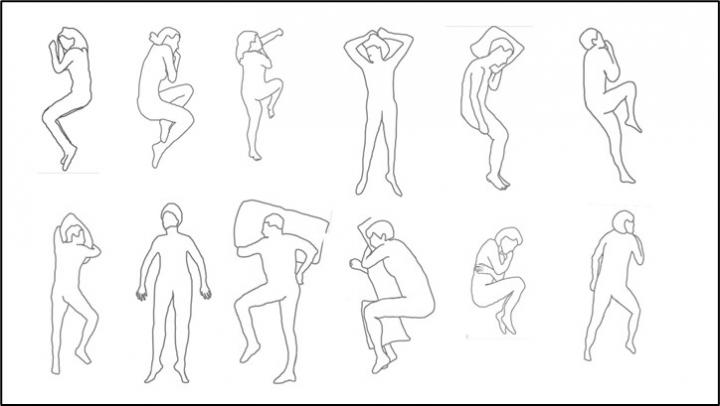The latest research and analysis on comfort and tips for creating a comfortable product, environment or system in product and environmental design are explored in a special supplement to the journal WORK

Credit: Peter Vink.
Amsterdam, March 1, 2021 – Comfort is a daily human experience central to the perception of our environment and the continuous processing of sensory input. Environmental factors such as smell, temperature and light can influence comfort, as can our interaction with products, such as the design of a chair or a mattress. Increasingly, researchers investigating the science of comfort and discomfort are focusing on the role of human behavior. A special supplement to the journal WORK presents the latest advances, from optimal seat design in offices and transportation to the influence of smell on comfort and the interaction between time and comfort.
“This special supplement adds unique findings to comfort knowledge. It shows that not only is the environment or a product itself comfortable, but also that the comfort experience depends on the way the user interacts with the product or environment,” explain Guest Editors Peter Vink, PhD, Faculty of Industrial Design Engineering, Delft University of Technology, Delft, The Netherlands; Susanne Frohriep, PhD, Grammer AG, Ursensollen, Germany; Neil Mansfield, PhD, Department of Engineering, School of Science and Technology, Nottingham Trent University, UK; Alessandro Naddeo, PhD, Department of Industrial Engineering, University of Salerno, Fisciano, Italy; and Karen Jacobs, EdD, OT, OTR, CPE, Department of Occupational Therapy, Boston University, Boston, MA, USA, and Editor-in-Chief of WORK.
The supplement presents 26 peer-reviewed papers from the International Comfort Congress (2019) representing 99 authors and co-authors from 12 countries.
In their contribution to the supplement, Dr. Vink and his co-author Maxim Smulders, PhD candidate, also at the Faculty of Industrial Design Engineering, Delft University of Technology, note that comfort research that has no information on the behavior of participants can be incomplete, as major influencing factors can be missed. For example, a straight spine in the sagittal plane is sometimes considered ideal for sleeping, but in reality, humans have different preferred postures and change positions frequently in bed. They discuss how posture and movement can affect comfort.
Another study found that in self-driving cars, inattentive occupants move their heads relatively more, which may influence their perception of comfort. Other behavior factors that influence comfort include previous experience, distracting stimuli and time. Two studies found that when a person sits for a long time with no possibility to change posture, such as on an airplane or while taking an exam, comfort is reduced.
Among the environmental factors explored in this supplement is the relationship between scent and comfort. One study found that the scent of mandarin is liked by many people, but the preferred intensity varied. Another study found that olfactory comfort is as important as thermal comfort in overall perceived comfort in cars. Radiative heating panels are more energy efficient than air heating in cars and offer the same quality of comfort. High intensity light was found to reduce visual and cognitive fatigue and increase comfort in computer users.
Comfort factors related to the body’s contact with products such as a floor, seat or bed are also discussed. The best design for a chair, based on several studies, is one that can be adjusted to various positions and buttock forms. A tilted backrest provides the most comfort for texting while in bed. Employees whose work requires that they stand for long periods of time may be more comfortable standing on a platform inclined between 5? and 10?.
The supplement includes an important contribution to future research in the field. Comfort is an individual and subjective concept, depending on the personal experience and state of the person over time. Questionnaires are important in the evaluation of a user’s experience of comfort or discomfort over time, along with objective measurements. Selecting the most suitable questionnaire in comfort research for product design can be a challenge, even for experienced researchers. A workshop of 55 comfort experts reviewed a number of standard comfort or discomfort questionnaires to develop an instrument for questionnaire selection. The resulting list of Preferred Comfort Questionnaires (PCQ) for product design lets researchers select the most appropriate questionnaire depending on application, design phase and use case. “We expect the PCQ will be a useful instrument for researchers,” says Dr. Vink, who was the lead investigator in the study.
In conclusion the Guest Editors observe that “Reporting these factors allows for better evaluation and comparison of comfort research results, which should contribute to an increase of scientific knowledge on discomfort.”
###
ACCOMPANYING VIDEO: https:/
Media Contact
Diana Murray
[email protected]




